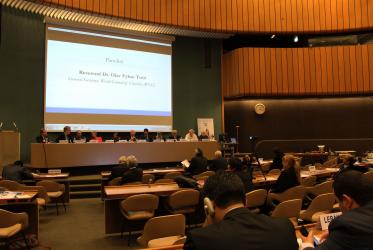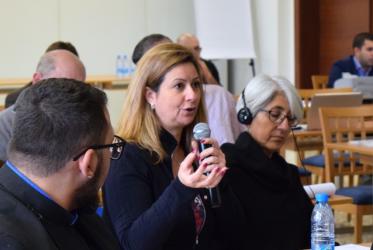Displaying 41 - 60 of 84
14 June 2017
Islam and Christianity: finding the common ground
16 March 2017
In Lebanon, refugees face hardship - but find hope
16 March 2017
The child in the manger and the war in Syria
22 December 2016
Strong bridges needed more than ever
21 December 2016
Churches’ diaconal action in the Middle East analyzed
01 December 2016
Beirut workshop fosters cooperation on diakonia
14 June 2016
Fleeing from – rather than to – a place
10 February 2016
Voices of faith speaking to voices of fear
03 February 2016
WCC Executive Committee works toward a future of peace and justice
19 November 2015









